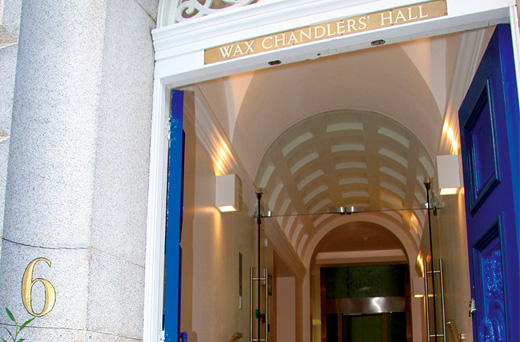Family history
It appears as if at present most users of the archive are amateur historians interested in their family history. The notes that follow are intended to assist such people.
The Company does not provide a research service and therefore if professional assistance is required it is advised that a researcher is engaged. One of our members, who has a suitable professional background and who can provide such a service is Mrs Jane Cox, who may be contacted at janelinney31@aol.com or 020 7485 4953.
The Company recognises that most amateur genealogists and researchers are unlikely to be looking at data from much before the middle of the eighteenth century. It has transcribed the Company’s summary membership records from 1730 until 1950, using information from Document 31635 (known as the Register), and from Documents 9487 Vols 1 & 2 (the Freedoms Admissions Register.) This PDF is available on this website in an easily searchable form by surname.
The information is not complete as occupations and addresses are not always given in the earlier years. Neither does it provide dates of birth or death, although these can in some cases be inferred from the date of admission. Information on members joining the Freedom since 1950 is not publicly available for reasons of confidentiality.
Additional information on admissions to the Freedom and on apprenticeships, such as the name of the Apprentice Master, date of binding, and fees paid, may be found available in Manuscripts 9488 to 9490. Lists of members for the years 1714 to 1734 are included in Manuscript 9492.
It is possible to establish the range of dates for an individual’s membership by examination of the Quarterage books, Manuscripts 9491 and 9502, and which cover the period 1672 to 1773. These served as the Clerk or Beadle’s rough notes to assist in the collection of membership dues, known as Quarterage. These often contain information on occupation and address but being rough notes, they are incomplete.
Lists of members paying Quarterage can also be found in some of the accounting records. For Court Assistants, further evidence as to dates of death can be found in the Court Minutes, because the death created a vacancy that needed to be filled. Of course, this information only relates to the senior members of the Company who served on the Court.
The Company’s records do not generally provide information on blood relationships. The Register identifies those admitted in right of Patrimony: a person joining in this way must therefore have been born after the admission of the parent, although the Register never identifies the parent.
Although anyone eligible to take up membership by Patrimony was supposed to use that route and not that of Servitude, a child born before the parent became a member, might, if aged between 14 and 21 and if the parent had no other apprentices, be bound apprentice to the parent and claim membership through Servitude. If these conditions could not be met, admission would have to be via Redemption or money purchase.
So taking up the Freedom by Servitude or by Redemption does not exclude a blood relationship with an existing member of the Company, but the Register is silent on these matters. It follows also that the date of binding of an apprentice provides a range of possible birth dates because an apprentice had to be aged between 14 and 21 at the date of binding.
The mere fact that a person’s occupation was that of a wax chandler does not mean that they were therefore members of the London Wax Chandlers’ Company.
- There was no legal, economic or political reason why a wax chandler in business outside of London and its suburbs should be a member of the London Company.
- A Wax Chandler, for example, in business in the West End of London, might, after the early eighteenth century, choose to avoid the expense of membership, because they might have taken a calculated approach to the worth of the economic and political benefits (which were largely restricted to the area of the City), and whether or not the Company was likely to seek to enforce the Charter requirement to submit to the Company’s authority.
- The Custom of London had, since time immemorial, allowed sons and apprentices to take up the Freedom of the City and the Freedom of a Company regardless of whether the Company concerned has anything to do with the trade or occupation of the new member.


